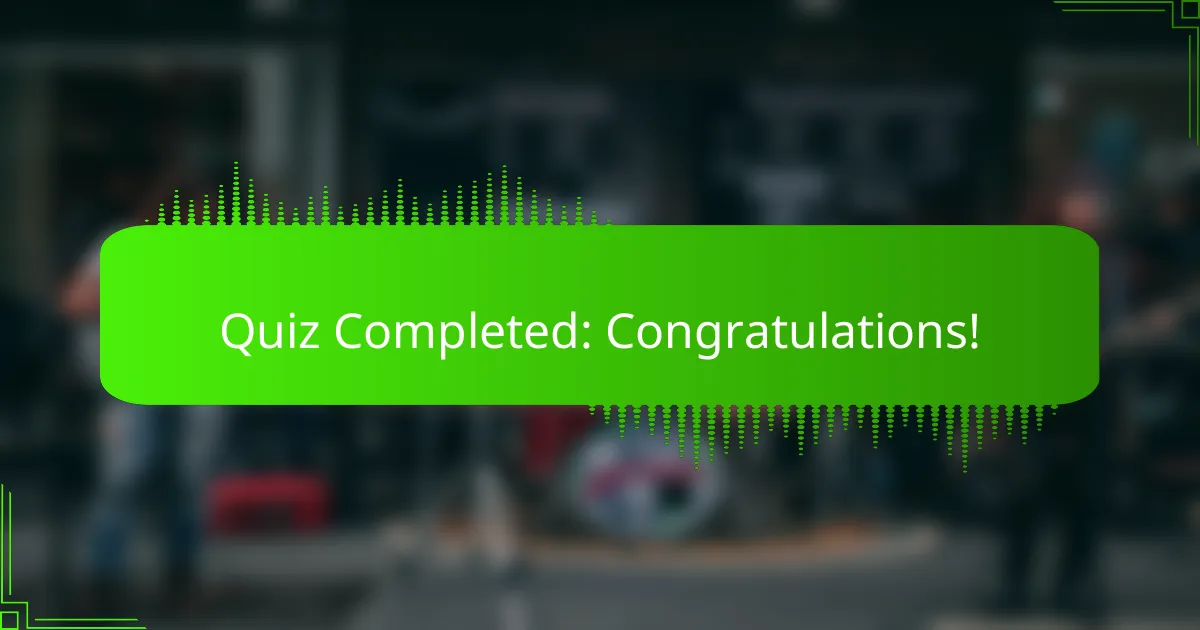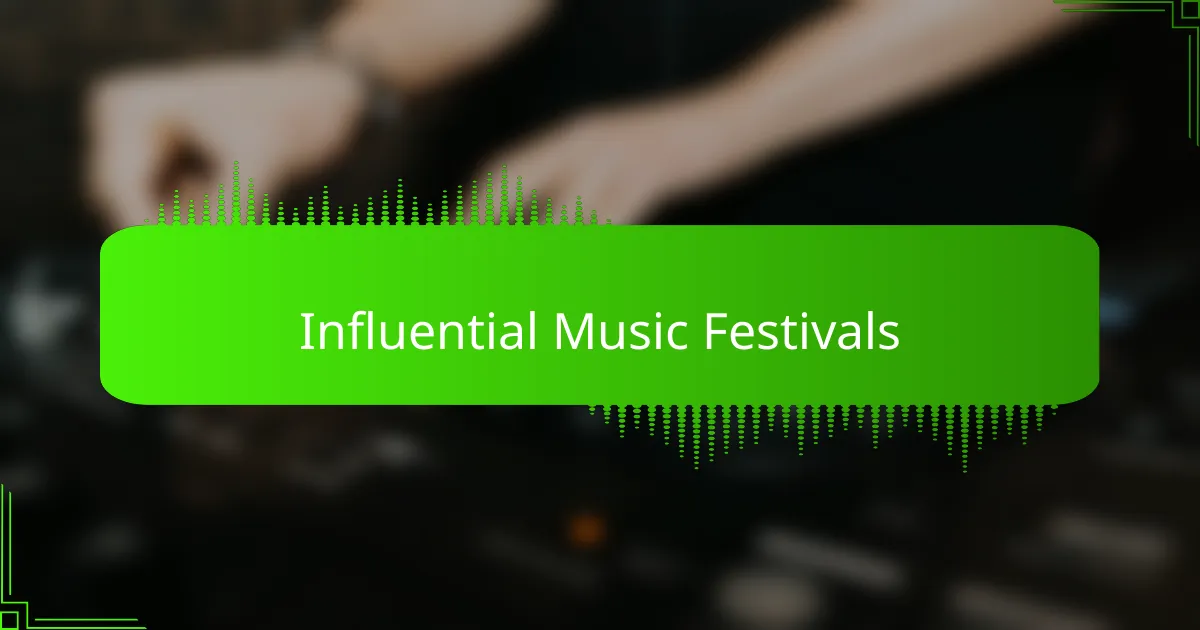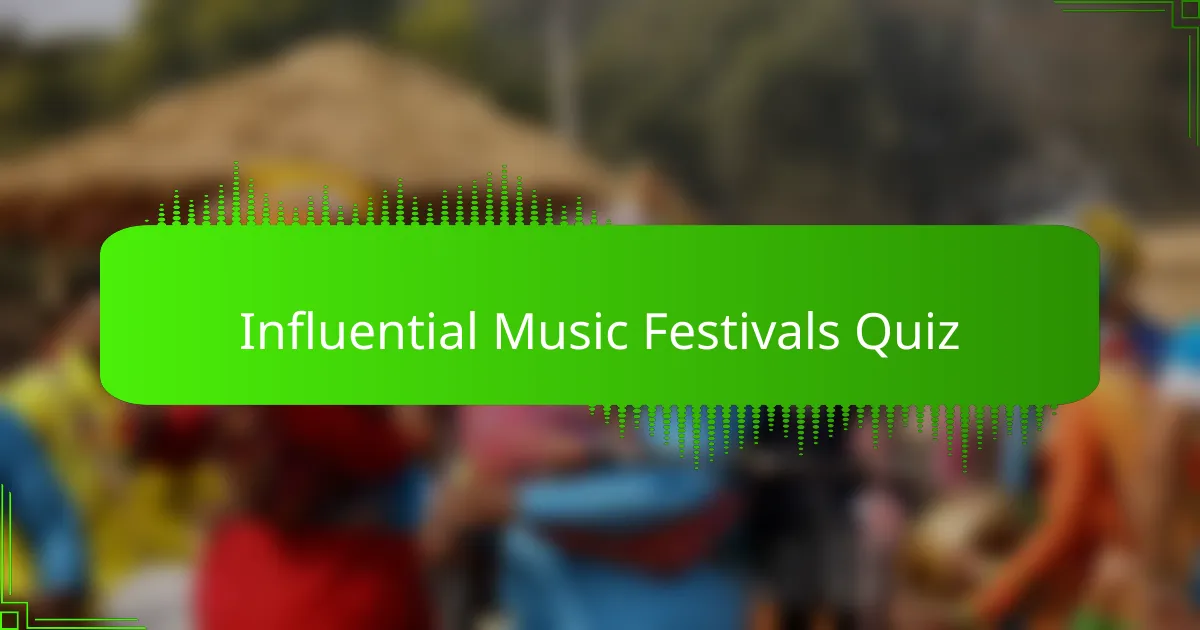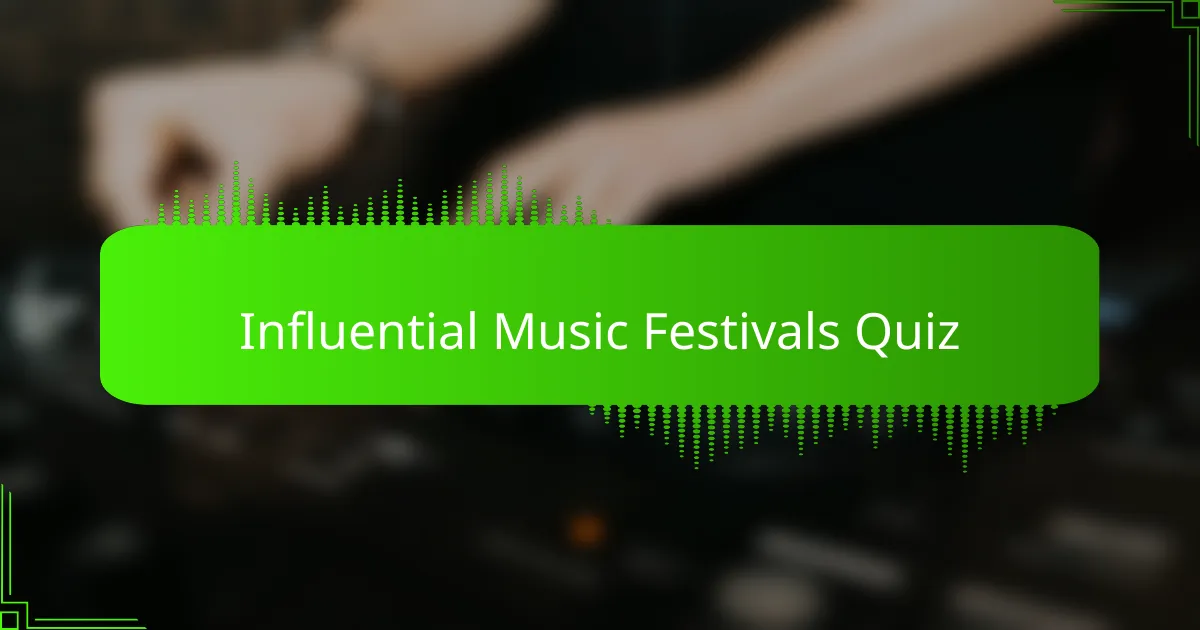
Quiz Completed: Congratulations!
Thank you for completing our quiz on Influential Music Festivals! We hope you found the experience both enjoyable and enlightening. Music festivals have shaped the landscape of the music industry, creating spaces where artists and fans come together to celebrate creativity and connection. You may have learned about key festivals that not only showcase diverse musical genres but also serve as cultural milestones.
As you reflected on the quiz questions, you might have uncovered fascinating facts about iconic performances, legendary headliners, and the impact these festivals have had on artistic expression. From Woodstock to Coachella, each festival tells a story of its own. Understanding these events can deepen your appreciation for the music and the culture surrounding it.
If you’re eager to expand your knowledge even further, we invite you to explore the next section on this page dedicated to Influential Music Festivals. You’ll find in-depth articles, artist interviews, and historical insights that will enhance your experience and understanding of these remarkable events. Dive in and discover more about the festivals that have left an indelible mark on the world of music!

Influential Music Festivals
Overview of Influential Music Festivals
Influential music festivals are large-scale events featuring live performances from various artists, often spanning multiple genres. Examples include Coachella, Glastonbury, and Lollapalooza. These festivals play a critical role in shaping the music industry by promoting new talent and introducing innovative trends. They attract diverse audiences and create communal experiences that enhance cultural exchange and music appreciation.
Historical Significance of Music Festivals
Music festivals have evolved significantly over the decades. The Woodstock Festival in 1969 marked a pivotal moment in music history, symbolizing peace, love, and cultural revolution. This festival set a precedent for large-scale gatherings that prioritize music as a unifying force. Festivals like the Monterey Pop Festival and Isle of Wight further established the importance of these events in influencing youth culture and music genres.
Major Genres Represented at Festivals
Influential music festivals commonly showcase a range of genres, highlighting both mainstream and emerging styles. Coachella is known for its eclectic lineup, featuring artists from rock, hip-hop, and electronic music. The New Orleans Jazz & Heritage Festival celebrates jazz and blues, while Tomorrowland is centered around electronic dance music. This genre diversity enriches the music scene and satisfies varied audience tastes.
Impact of Music Festivals on Emerging Artists
Music festivals serve as vital platforms for emerging artists to gain exposure. For instance, many artists have launched their careers by performing at festivals like South by Southwest (SXSW). The visibility gained from such events can lead to record deals and increased popularity. Notable examples include Hozier, who rose to fame after performing at SXSW in 2014, demonstrating the potential impact of festival stages on new talent.
The Role of Technology in Modern Music Festivals
Technology plays an essential role in enhancing the festival experience. Innovations like live streaming allow fans worldwide to engage with events remotely, expanding reach and visibility. Festivals such as Bonnaroo and Coachella utilize apps to provide real-time updates, schedule changes, and interactive maps. Advanced sound and lighting technology also elevate performances, contributing to an immersive atmosphere that keeps attendees returning each year.
What are influential music festivals?
Influential music festivals are large-scale events that showcase a variety of musical genres and attract significant audiences. Events such as Coachella, Glastonbury, and Lollapalooza are prime examples. These festivals not only provide platforms for established artists, but also for emerging talents, impacting the music industry and culture. According to Pollstar, in 2019, Coachella generated $1.2 billion in economic impact, underlining its influence.
How do music festivals influence artists’ careers?
Music festivals provide exposure to large, diverse audiences, which can significantly impact artists’ careers. They often lead to increased streaming numbers, merchandise sales, and opportunities for future bookings. For instance, many artists who perform at festivals like Bonnaroo or South by Southwest see a substantial increase in their social media followers post-event, as highlighted by a study from Eventbrite.
Where are the most famous music festivals located?
Famous music festivals are located in various regions worldwide. Key locations include Coachella in California, U.S.; Glastonbury in England; and Tomorrowland in Belgium. These festivals attract international attendees and artists, contributing to their global reputation. For example, Tomorrowland sells out in minutes each year, highlighting its iconic status in electronic music culture.
When do major music festivals typically occur?
Major music festivals typically occur during the spring and summer months. For instance, Coachella is held annually in April, while Glastonbury occurs in late June. This seasonal timing allows for favorable weather conditions and larger audience turnout, as evidenced by the consistent attendance numbers reported by festival organizers.
Who were the founders of notable music festivals?
Notable music festivals have had various founders. Coachella was founded by Paul Tollett and Rick Van Santen in 1999. Lollapalooza was started by Perry Farrell in 1991. These founders played crucial roles in shaping the festivals to be what they are today, influencing music culture globally, as detailed in festival histories by resources like Rolling Stone.

